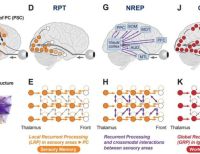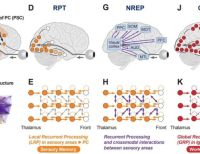The word “brainwashing” usually triggers negative associations. But our brain health for sure depends on it. Scientists at the University of Oslo have recently made new and important discoveries about how and why this happens when we are sleeping.
“Our discoveries can help us find new ways to treat or even prevent Alzheimer’s disease and other neurodegenerative diseases. These findings can also help to create strategies to deliver drugs to the brain more efficiently”, explains associate professor Rune Enger at the Letten Centre at the University of Oslo.
The brain is being washed when you sleep
“Brainwashing” or brain waste clearance is a process of removing harmful waste products from the brain. The brain is continually producing waste substances and if too many of them accumulate, it raises the risk of Alzheimer’s disease and other neurodegenerative diseases.
“The “brainwashing” process is far more efficient when you are asleep than when you are awake. The reason for this is not yet clear”, says Enger, who works at the Institute of Basic Medical Sciences. He is the last author of the new article published in Nature Communications.
Blood vessels in the brain dilate and constrict in certain patterns while we sleep
Waste products from the brain are cleared along specialized tunnels around brain blood vessels. Therefor movement of the blood vessels could affect this process. The researchers had the mice sleeping naturally and then examined what was going on in their brains using an advanced laser microscope.
They discovered that the blood vessels in the brain, specifically the arteries, dilated and constricted in certain patterns while the mice were sleeping. Such movements were not observed in awake mice. These movements probably pump fluids around the brain when we are asleep, cleansing the brain of waste substances.
Not only deep sleep is important for ridding the brain of waste
Up until now, it was believed that it was only deep sleep that was involved in this cleansing of waste products. Yet in this study, the researchers observed something striking: the blood vessels in the brain constricted and dilated in patterns unique to each sleep stage of the entire sleep cycle, including deep sleep, REM sleep and even the brief awakenings that pepper our nightly sleep and are a natural part of a sleep cycle.
During deep sleep the arteries slowly dilated and constricted, but as the mice transitioned to REM sleep these oscillations became smaller while the artery slowly dilated. In REM sleep arteries stayed dilated before quickly constricting at the end of a sleep cycle to the same size as before falling asleep. Such constrictions also happened during brief awakenings we experience while we sleep.
“It is as if every part of the sleep cycle has its unique dance of brain arteries”, says one of the first authors, Dr. Laura Bojarskaite.
Pumping of blood vessels boosts brain fluid flow and molecule transport
The researchers saw that these sleep cycle dependent artery dilations and constrictions affected the size of the channels around the blood vessels that are important for the transport of fluids and molecules in the brain. These channels widened and narrowed in step with the blood vessels, leading Enger and his colleagues to believe that the flow of fluids was also affected.
The researchers then went on to use biomechanical computer modelling and simulations.
“To sum up, we found that the artery dilations and constrictions and the simultaneous changes in the channels around them had a big part to play in both the flow of fluids and the transport of substances in the brain”, explains Kent-Andre Mardal, who led the computer modelling work in the study.
The researchers believe that this new study may explain why the flow of fluids and waste clearance in the brain is different when you are asleep compared to when you are awake and identifies blood vessel dynamics in sleep as a potential target for the prevention of neurodegenerative disease and for improving drug delivery to the brain.
The research group
Researchers working at the GliaLab of the Letten Centre at the Institute of Basic Medical Sciences, the Faculty of Medicine, University of Oslo led the study in collaboration with researchers at the Institute of Mathematics, UiO, Simula and the Norwegian Computing Center (NR). The first authors of the study are Laura Bojarskaite, Alexandra Vallet and Daniel Marelius Bjørnstad.







